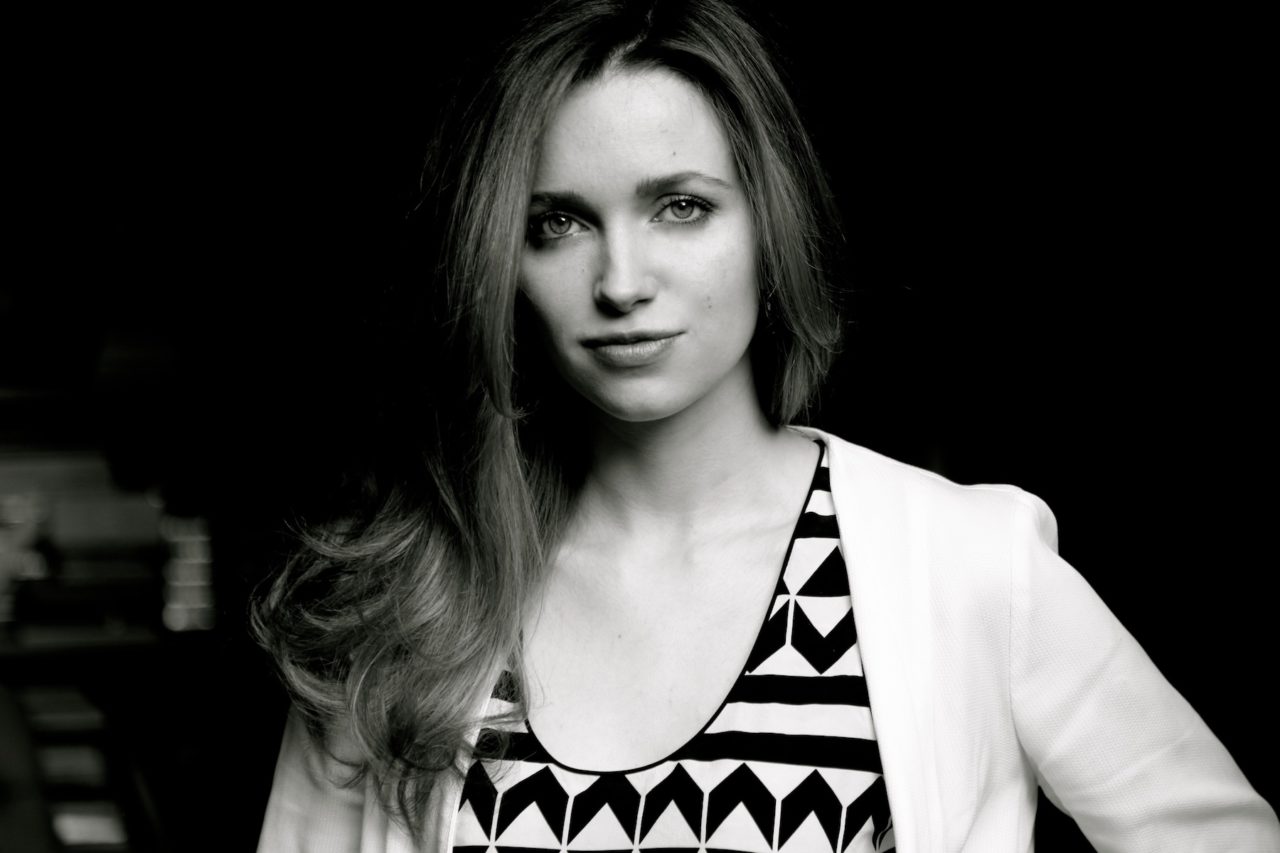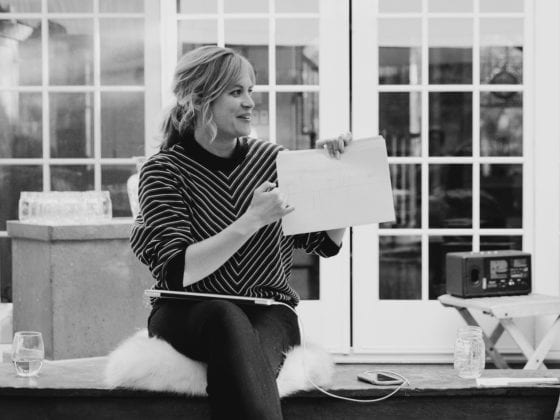When you feel overwhelmed by something, channel that anxiety into researching who is doing something about it.
In the case of the world and the internet, where the ills of the former are seemingly multiplied by the cacophony of the latter, it can feel especially overwhelming to know what to do with all of the awareness available at our fingertips. While awareness is never a bad thing (we probably need more of it today than ever before), it is only half of the equation. To solve the problem of any issue, awareness needs to translate into effective action.
That’s why Jordan Hewson, Founder and CEO of Speakable, created the Action Button. In a time where we have unprecedented access to information, we’re also at increased risk of detached consumption. The lightbulb may go off when we recognize the seriousness of an issue, yet we can remain paralyzed in its light. The Action Button reanimates our compassion by providing a way of advocating for an issue as soon as we read about it; actions that support relevant NGOs and non-profit campaigns are embedded directly within an article that illuminates an overarching cause.
Here at Darling we are incredibly excited to begin pairing the Action Button with articles on our site. Additionally, we were equally as excited to talk to Jordan for a deeper conversation on activism and social media, how Action Button began and why she’s generally very hopeful about the state of our world.

Read on, below.
Nicole Ziza Bauer: Action Button, let’s start there. Can you tell us what prompted it and what sort of research went into developing it?
Jordan Hewson: The founding of Action Button was inspired by a personal experience I had while reading a piece of news content two years ago. I was reading an article about Malala [Yousafzai] being shot by the Taliban for advocating for her own right to go to school. I was so frustrated and enraged by the content – and felt energized by it – but I never clicked on the link to a petition that the article alluded to in order to support her.
Instead, I just went back to reading my emails until about an hour later when I started to think about Malala and caught myself in the act of not doing anything to support her. At the time, I was working as a campaigner for the end of extreme poverty, so it was my job to get people to take action on these types of issues. I thought to myself, if I’m not going to do it, who is? And even though I really care about this issue, why didn’t I take action?
So I started to ask questions about the barriers that exist to our own civic participation. If we were able to make taking action on this type of content a more seamless and exciting experience, could we create the likelihood that people actually will do something about the news that they read? And that was really the genesis of Action Button.
NZB: What feedback have you received so far?
JH: The [NGO and non-profit] organizations are excited about what the product can do because now they can reach untapped audiences in moments where they are primed to support their causes, which is incredibly valuable to a nonprofit. To be able to capture a supporter in 30 seconds or less is a big moment of progress.
Publishers are excited by the fact that 71% of readers are completing an action once they initiate it, so it’s proven that there is a big demand for this type of engagement with content. People want to become an active part of stories that they care about – not just reading headlines, but changing them.

NZB: You’ve previously spoken on “Twitter activism” and how you don’t necessarily think that it’s a bad thing; civic activism doesn’t need to be complicated in order to be effective. Can you go into that a little more?
JH: Millennials get criticized all the time for what people call “hashtag activism” or “slacktivism.” I take a little bit of issue with it because if technology is doing its job, then it should make taking action and making a difference easier than it’s ever been before.
A lot of time I think there is a conception that in order to make a difference on an issue, it has to be difficult. You have to build a house or school in Kenya or something like that, and while that work is really worthwhile, I also think that supporting experts in the field and giving people the tools to be able to build their own homes is just as important. It can be done successfully and so much faster if you contribute to the organizations that are already in the field and have the tools and resources to execute impact effectively.
There is a lot to be said for supporting campaigns from experienced nonprofits rather than starting your own crowdfunding campaign. There is definitely value in that as a lot of issues are underrepresented, but we no longer have to equate making a difference with a lot of effort. That’s at the core of what we do: How do we make it faster and easier for people to take action on issues that matter to them so they can do it every day?
If technology is doing its job, then it should make taking action and making a difference easier than it’s ever been before.
NZB: Since your company, I’m assuming, is so integrated and reliant on credible news sources to report on an issue to begin with, how would advise readers to engage in an informed way with the media?
JH: It’s a really interesting question that’s at the center of a lot of debate right now. We’ve even talked about in our office and though this will not be our next product [laughs], there needs to be a Charity Navigator for publishers, like a watchdog or some kind of evaluating body that could give a score on how neutral a piece of content is or how accurate the facts are.
A lot of it is about where you are getting information and the algorithms that are controlling what you are exposed to, which is something that I think people have to be wary of. Personally, I read The Guardian and a lot of traditional publications, but I think that this is a really big challenge for our generation.
NZB: How does Action Button vet the news outlets and publishers it works with?
JH: The goal on the publishers’ side is to be across as many as possible, and right now we are working with select sites while we refine and scale up our platform.
With NGOs it’s a little bit more interesting because there are a variety of watchdogs out there that will vet NGOs on certain criteria, so we use a select group of verification services like Charity Navigator or BBB Wise and all of our partners need to have a score of 90% or above. We also work with our nonprofits on a reporting mechanism where they report back to us every couple of months on the status of campaigns that we’ve been supporting in the media, which is a nice feedback loop for the user to get a status update on what they’re actually achieving.
NZB: Would you say Action Button relies on people genuinely wanting to help? That humans are inherently good at heart and that Action Button just brings that to the surface?
JH: Absolutely. I would say that’s at the core of what we do.
I really believe that people want to make a difference and use their lives to make an impact. That’s probably why our model is very different from other campaign platforms, which rely a lot on celebrity endorsements and reward systems where people have to be incentivized in order to take an action. We don’t really believe people need to be incentivized, we just believe they need to be empowered with information so they can make a decision on what they want to do and have the right tools to achieve it.
Action Button is based on the philosophy that when people are inspired by something they’re reading, they’re going to want to impact it. We believe that people inherently care, want to make a difference and drive the world to be a better version of itself.
We don’t really believe people need to be incentivized, we just believe they need to be empowered with the information so they can make a decision on what they want to do …
NZB: No matter what it’s regarding, the nature of activism seems fueled by this idea that there is a line of good and bad somewhere. As a company, do you think it’s possible to maintain such a line without getting tangled in issue particulars?
JH: In some ways what we have to do as a company is be issue-agnostic. That means we have to empower news readers wherever they fit on a particular issue. There have been moments of difficulty trying to answer this question. I think there is a neutrality aspect that our company needs to take to serve our users meaningfully. But there are also certain parameters that can be put in place around hate, hate groups and hate speech. Where you draw those lines is what every company must come to terms with.

NZB: Readers may or may not know that your father is Bono, lead singer of U2 and a very engaged activist. Because of that you’ve probably been exposed to things that maybe others wouldn’t have while growing up. How would you encourage anyone to get involved and find issues that matter to them, whether their world feels big or small?
JH: I definitely think I was exposed to a lot growing up, which helped to direct the path that I took. I wanted to discover what my own impact would be in the world. I didn’t necessarily understand how to contribute my time effectively, and I think a lot of us have that feeling.
Trying to address the problem of people feeling like they don’t know what to do is at the core of what we’re trying achieve. People read news, they’re inspired by it and they want to impact it but they don’t know where to start. That was really the start of the company because you should be able to discover ways that you can take action in the places where you already are, whether that’s reading a news article or watching a YouTube video. I think that’s why Action Button sets a strategy that would empower people in ordinary moments to do something extraordinary.
NZB: Are you generally hopeful for the world and the future?
JH: Yes, I think we’ve made a lot of progress. I just went to a conference that was hosted by the Bill and Melinda Gates’ Foundation called Goalkeepers, and they talked a lot about the progress that’s been made toward sustainable development goals. Obama spoke about how the world is actually getting better and it was very hopeful to see the types of innovations that are being made to solve some of the biggest challenges the world is facing. So I feel positive.
I feel like we’ve never seen this level of activation in civil society before — at least in my lifetime — and it’s incredibly exciting to see people so energized and so eager to find opportunities to make a difference. I think we have a lot to be excited about it.
NZB: What we would be surprised to know about you?
JH: This just happened: I got my MFA from Columbia University in Creative Writing but I majored in poetry. People are often surprised when I tell them that.
[action_button]Stay tuned as you’ll start to see the Action Button in use around the Darling site! You can already find it here and here.
Images via The Identité Collective











1 comment
I like that Action Button tries a different approach to raising awareness. I hope they’re right that people actually don’t have to be incentivised to do good!
–
Charmaine Ng | Architecture & Lifestyle Blog
http://charmainenyw.com